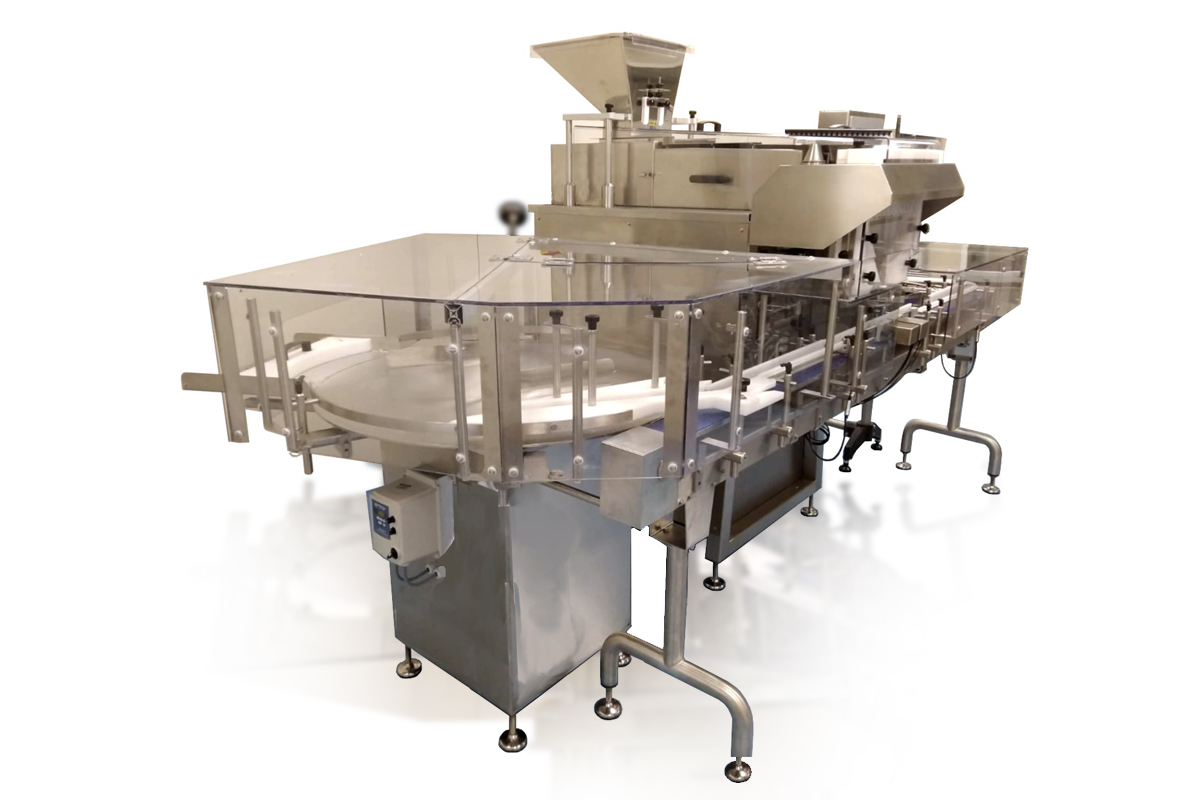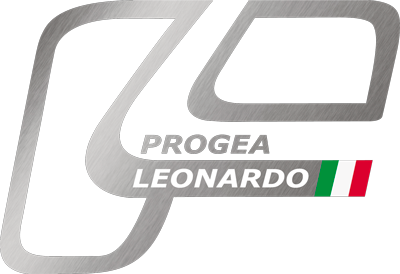
Total customisation of machine tools: Progea Leonardo's growth strategy explained by CEO Giarola
05-03-2024
The Albuzzano-based company, 2.6 million turnover, produces machine tools for various sectors and complete production lines.

Article from:
https://www.industriaitaliana.it/progea-leonardo-automazione-macchine-utensili-cobot-robot/
More and more manufacturing companies producing industrial machinery are adopting total customisation. They do this to differentiate themselves from the competition, create added value for their corporate customers and meet increasingly demanding market requirements. But what is it all about? It is about bringing to life a level of customisation that goes beyond the predefined options offered by the manufacturer and allows customer companies to influence every stage of product creation. From design to installation, the conditions are created for them to use interactive tools to define specifications, choosing sizes, shapes, colours, materials, functionality and any other aspect. Progea Leonardo, a company based in Albuzzano (Pavia), knows this well. It designs and manufactures robotic industrial machines, such as lines for coffee machine pumps, but also automated machines for the pharmaceutical, cosmetics and confectionery industries. The company, with a turnover of 2.5 million, has made total customisation the core of its growth strategy.
Customer companies include the winding and assembly systems manufacturer for coils and motors Marsilli, the global automotive and marine supplier Persico, the cosmetics manufacturer Intercos, the hygiene products manufacturer Cosmeva, and the solenoid pump company Ceme.
Parallel to its activity as a manufacturer, the company imports and installs industrial (and other) collaborative robots according to the demands and needs of its client companies. These include Pudu bot, the 'waiter' cobot that makes deliveries to pubs and restaurants. We talked about it with Angelo Giarola, CEO and technical engineer of Progea Leonardo.
Q: Can you tell me a little about the company, where it is based, when it was founded, turnover, employees?
A: The company was born in 2006 and was founded by Benedetto Perrotta; initially, the company dealt with mechanical machining, with machining centres and Cnc; the turning point into automation came between the end of 2009 and the beginning of 2010, when I entered the company and bought half of the shares: I am now a managing partner. Progea has 14 employees. It is currently making a strong investment in terms of personnel, as seven people have joined the team. The core business is special machines, for industrial automation: the customer asks for ad hoc machines that are also capable of producing products very quickly.
Q: Which industrial sectors are most interested in Progea's machines and products?
A: We have developed a lot in the beverage sector and in particular in the production of lines for coffee machine pumps; but also cosmetics, pharmaceuticals and the confectionery sector are becoming increasingly important for us. Moreover, from 2021 we have decided to become distributors of two brands of robots and cobots: one of industrial models (Turin: 4-axis scara, and six-axis anthropomorphic) and one of cobots (Hans). Finally, we also handle the sale of Agv Hans
Q: So the company is expanding
A: We would like to grow faster; but the problem is to find 'qualified and passionate' technical staff; we are investing a lot in young people, hoping that they will be our future. We need to focus a lot on training and respect.
Q: How digitised are Progea's machines? Is artificial intelligence involved?
A: I would say that we are one step away from implementing artificial intelligence: we are at a very good level of human-machine integration.
Q: What are the challenges? What is the market asking for?
A: The market is asking for special machines, for very specific industrial processing; and it is asking for these to be easily integrated with robots, so that they can replace humans in non-value-added tasks. Now, thanks to new and powerful vision systems, robots can orient themselves and act almost automatically.
Q: Speaking of special processing machines, you produce machines for cosmetics
A: We actually have robotic in-line machines with multiple manipulations for labelling and packaging mascara, lipstick, and cocoa butter. The first machine picks up the parts from the upstream machine that makes the mascaras, orients them and places them on the second machine with a double rotating vision system, and with the task of positioning the mascaras for labelling. The third machine, with a robot, picks up the mascaras and places them on a belt of the fourth, which is the labeller proper. At the fifth station a robot picks up the goods and places them on a belt for packaging. In short, there is almost the whole cycle. Then there are the cosmetic powder compactors, such as the A17022.
Progea Leonardo produces machine tools for different sectors, including cosmetics.
There are rotary table machines, with automatic loading and recovery of powders, and the possibility of manual or robotic implementation of metal bottoms. The latter machines are characterised by great quality, and the possibility of eliminating entire process steps, saving space, money and time. They go well with 4.0: they can be managed and controlled remotely, and integrated with our collaborative robots, as they are already set up for this. Moreover, we are not just manufacturers: we are integrators, so on the one hand we connect the machines with each other, and on the other hand we provide services and support. These machines work with PLC programming (programmable logic controller is a computer for industry originally specialised in the management or control of industrial processes; Nrd) and have recipes pre-compiled by the operator - also for timing, execution speed, forces involved, pressures; if linked with Erp (enterprise resource planning, it is a management software that integrates all business processes and all relevant functions, e.g. sales, purchasing, warehouse management, finance or accounting; Ed) or Wms (a warehouse management software capable of adapting to specific needs and ensuring the functioning of the logistics chain; Ed) - the customer is able to save all data, both for statistical purposes and for predictive maintenance.
Q: It was said that you are also distributors of industrial robots
A: Turin Robot of Shanghai, for example, is a leading provider of automation and system integration solutions for industrial robots, including the industry's fastest Scara robot at 0.28 seconds per cycle, four-axis Scara, light six-axis mini, delta, robot and fully loaded series with payloads from 1kg to 500kg. In reality we are not just distributors; in the sense that Europeans are very sensitive to imperfections. We point them out to the Chinese manufacturers, and they make the necessary corrections. On the other hand, the Chinese give us good prices, which help us to be competitive.
Q: Which Cobots do you deal with, in terms of marketing?
A: For example of Pudu bot, the "waiter" cobot that makes deliveries in pubs and restaurants. It has an attractive appearance, and AI-based voice features. For positioning and navigation, to be able to adapt to multiple scenarios, Pudu bot supports both laser slam (simultaneous localization and mapping; systems that serve to build a map of the room in an initially unknown environment; Ed.) laser and visual slam solutions. Pudu bot adopts an innovative bionic design, from the height of the machine body to the inclination of the screen, to the curve of the shapes; and, for added safety, Pudu bot is equipped with 3D sensors and a new modular chassis. It can stop at any angle and move as soon as it encounters an obstacle. The front detection angle exceeds 192 degrees, while the obstacle detection distance is 10 meters. The interaction is multimodal: voice, light, touch and meaningful expressions. Bellabot is produced by Pudu Robotics, a technology company based in Shenzhen and founded in 2016; has grown rapidly in recent years to become a “leader” in global markets with coverage of over 60 countries worldwide. Robots are widely applied in restaurants, hospitals, schools, office buildings, government halls, subway stations, waiting rooms, and more.
Q: What are the pillars of Progea Leonardo's research and innovation strategy?
A: In reality, thinking about our machines, research and innovation are necessarily a continuous process, because we create products that are the result of 100% customization, total customization. This level (of customization) goes beyond the simple default options offered by the manufacturer and allows client companies to influence every step of the creation process. The first step is the project. Here customers can work directly and indirectly with designers or use interactive tools to define specifications. They can choose sizes, shapes, colors, materials, functionality and any other aspect they want to realize. Once the customized product has been created according to the customer's specifications, the installation phase begins. This may vary depending on the type of product; in any case, assembly and positioning must be carried out in the space desired by the customer. Therefore, throughout the customization process, close communication with client companies is important. This also allows us to address any problems that may arise during construction and to ensure that the final product meets expectations.
Q: What are the advantages of total customization?
A: The total customization of a product offers numerous advantages both for client companies and for us. For the former, it allows them to obtain a unique product suited to their specific needs, improving the experience and overall satisfaction. For us, it offers the opportunity to differentiate ourselves from the competition, to create added value for customers and to satisfy increasingly demanding market demands.
Q: Other pillars of the growth strategy?
A: I believe that this year we will focus a lot on the growth of technical personnel, with investments in training: we can only advance as a company by having the ability to create products. That's where the added value for our business lies.
Q: Are there any markets you would like to enter?
A: More than anything, we would like to expand even further into pharmaceuticals, cosmetics and automotive. Then it happens that we are contacted by companies in sectors that we do not deal with, but which could prove interesting. As for geographical areas, we have sold machines all over the world except Australia and the Middle East.
Q: Do you have acquisitions in mind?
A: Three years ago we were ready to acquire an electronics company; then we diverted the financing to the collaborative robot business. Rather, there have been purchase requests from third-party companies interested in buying us.

 Via Alessandrina 300 | 27010 Albuzzano (PV) Italia
Via Alessandrina 300 | 27010 Albuzzano (PV) Italia







